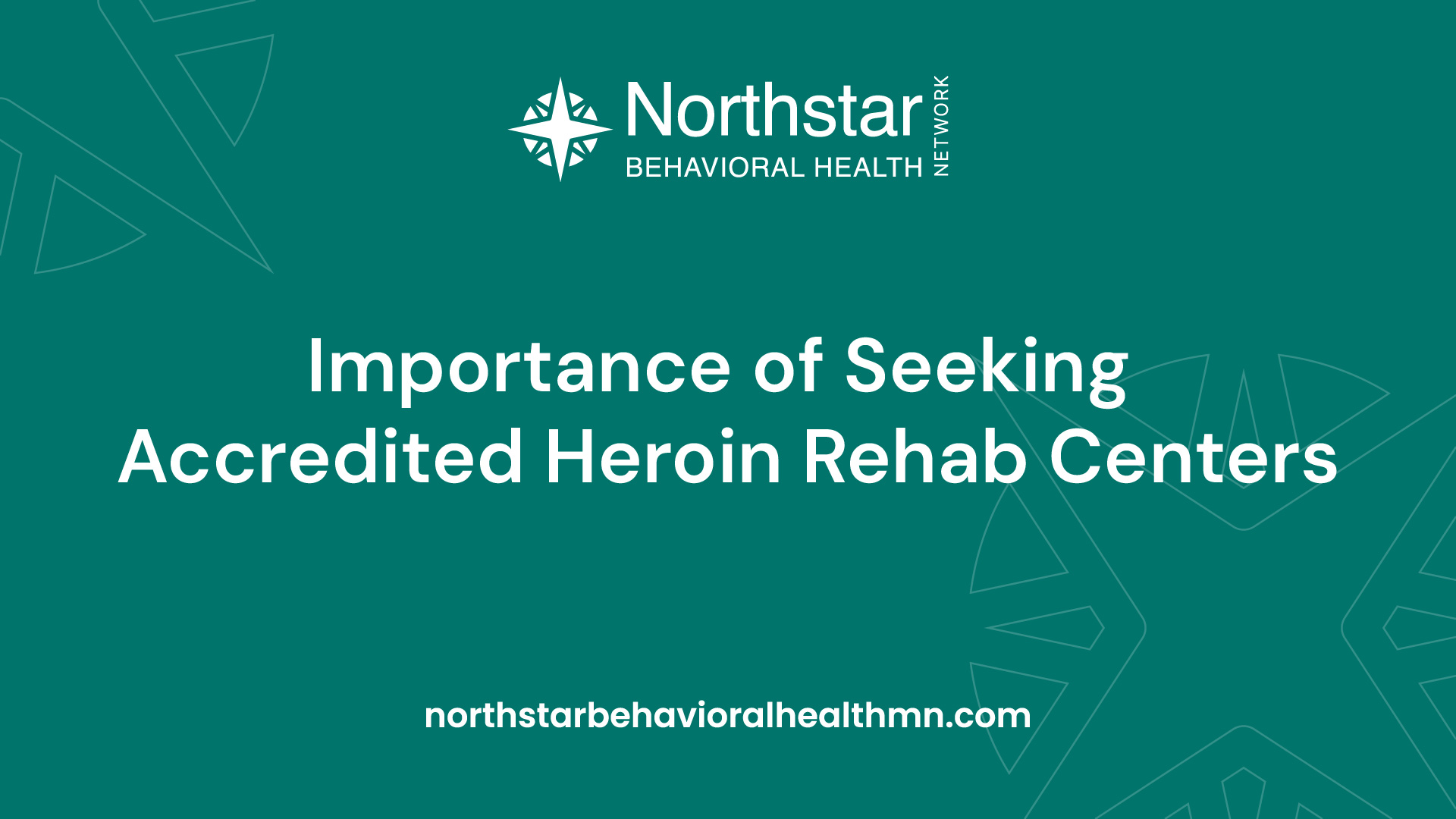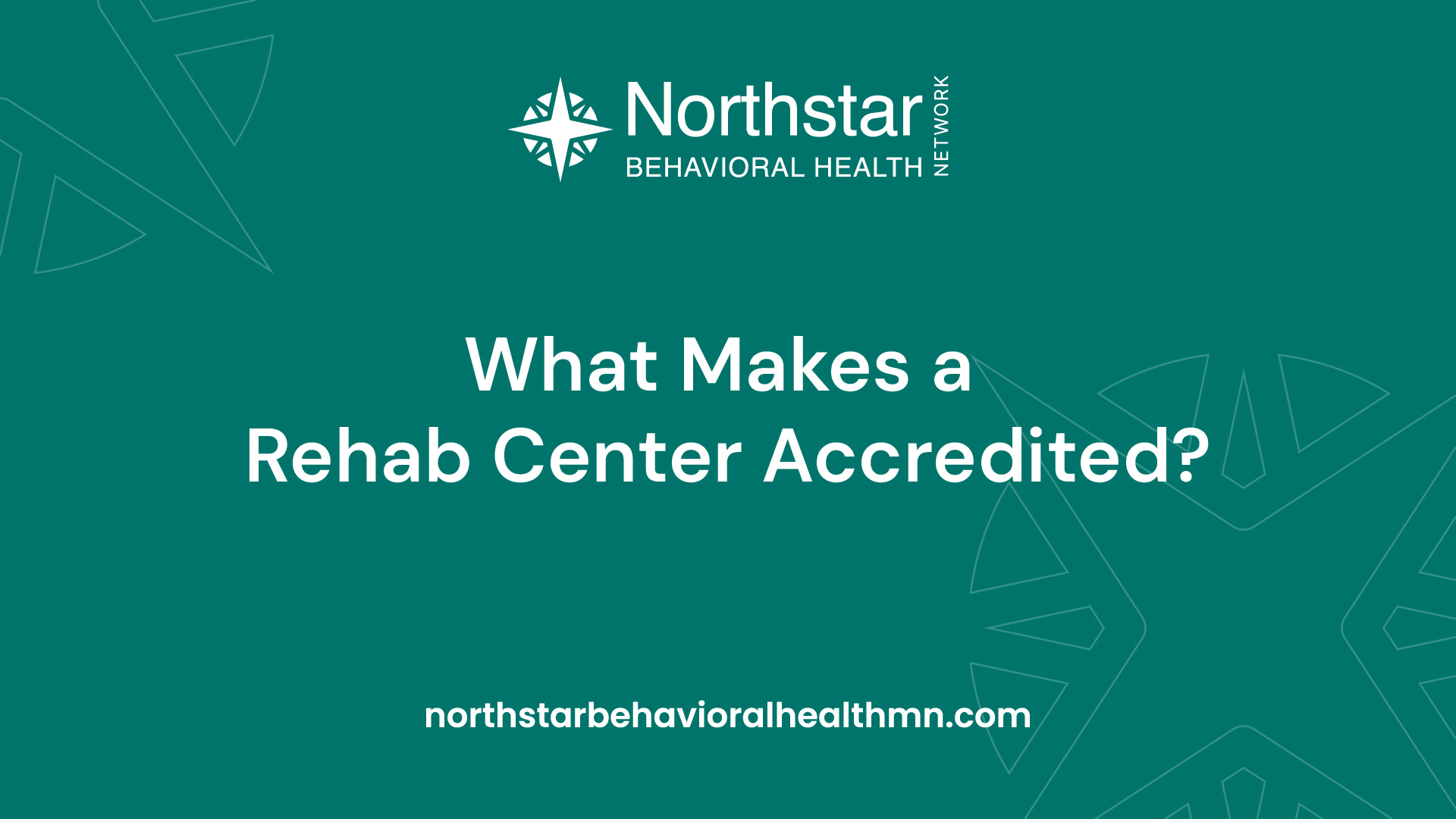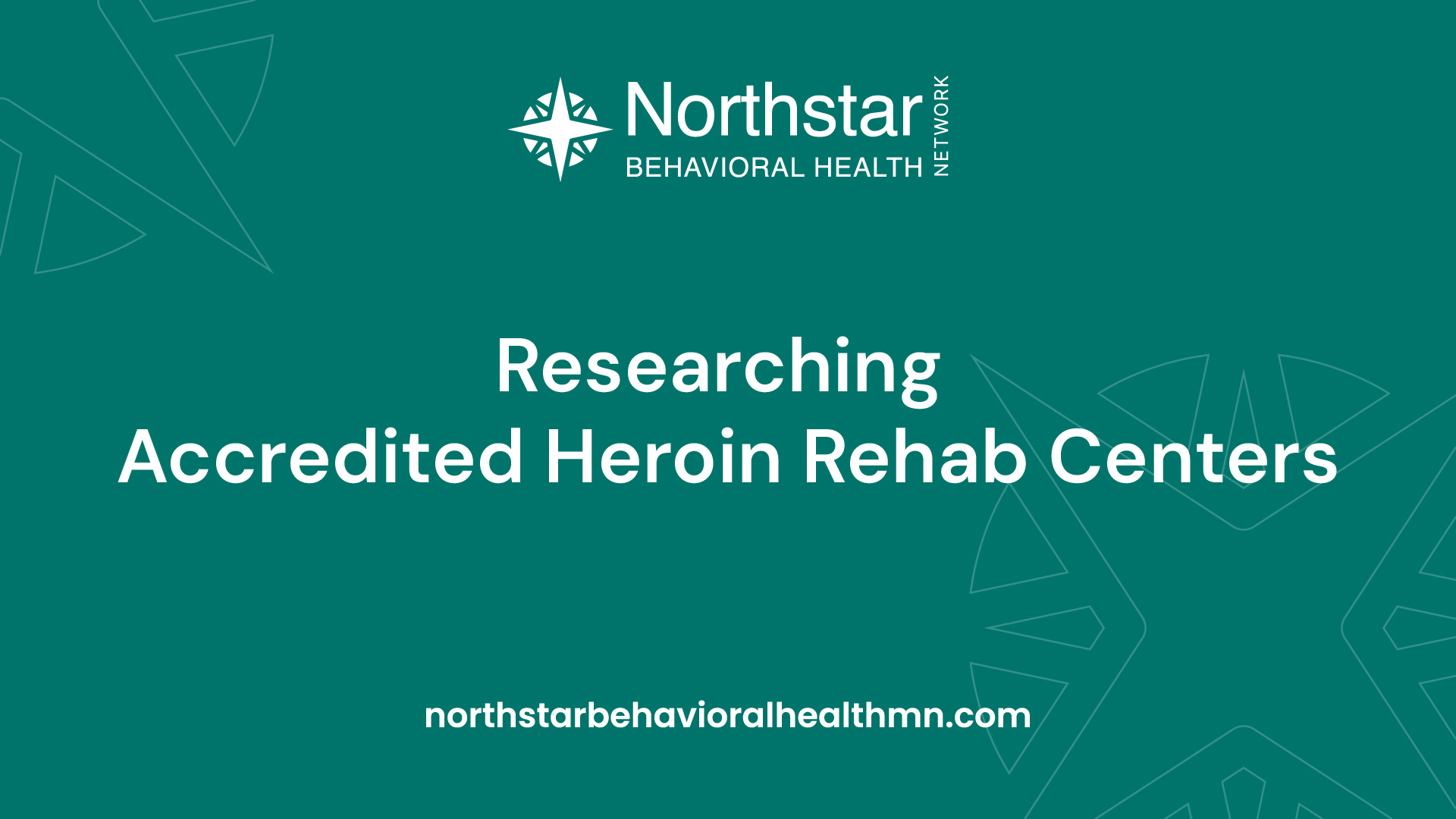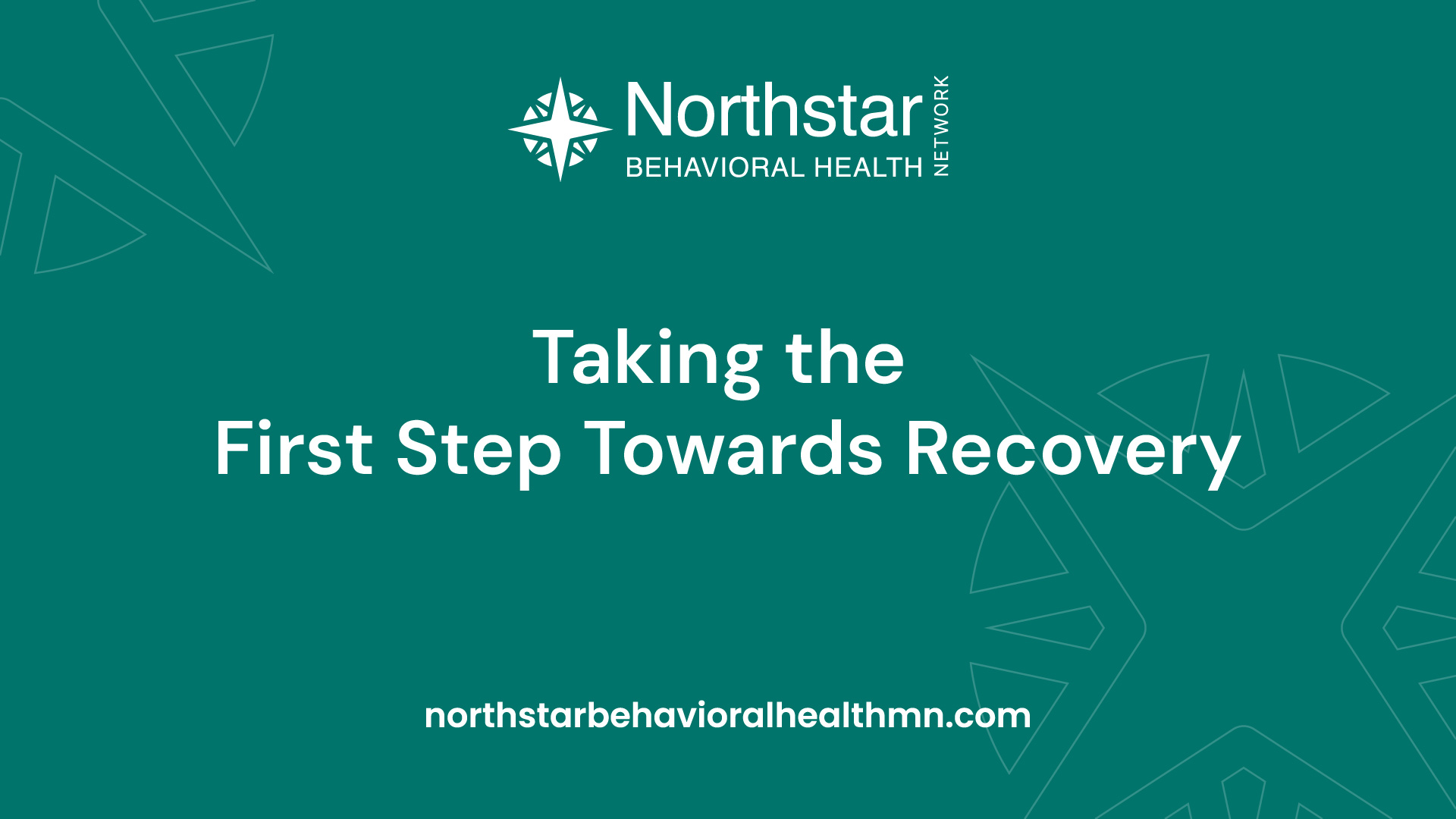August 4, 2024
Finding Accredited Heroin Rehab Centers
Discover accredited heroin rehab centers to kickstart your journey to sobriety.


Understanding the Journey to Sobriety
Embarking on the journey to sobriety is a courageous decision that can lead to a healthier and happier life. It begins with acknowledging the need for help and recognizing the importance of seeking accredited heroin rehab centers.
Acknowledging the Need for Help
The first step towards recovery is acknowledging that there is a problem and recognizing the need for help. This can be a difficult and emotional realization, but it is an essential part of the journey to sobriety. It takes strength and courage to confront the impact that heroin addiction has had on one's life and the lives of loved ones.
By acknowledging the need for help, individuals open themselves up to the possibility of change and healing. It is an act of self-compassion and a commitment to a better future.
Importance of Seeking Accredited Heroin Rehab Centers

When seeking help for heroin addiction, it is crucial to choose an accredited rehab center. Accreditation ensures that a rehab center has met specific standards of quality and safety. These standards may include qualified staff, evidence-based treatment approaches, and a safe and supportive environment.
By choosing an accredited heroin rehab center, individuals can have confidence in the quality of care they will receive. Accredited centers adhere to best practices and offer evidence-based treatments that have been proven effective in helping individuals recover from heroin addiction.
Additionally, accredited rehab centers often provide a comprehensive range of services, including medical detoxification, individual and group therapy, and aftercare support. These services are designed to address the physical, psychological, and emotional aspects of addiction, providing individuals with the tools and support they need to achieve long-term sobriety.
To find accredited heroin rehab centers in your area, you can utilize online resources that provide directories of treatment facilities. It is also helpful to seek referrals and recommendations from trusted healthcare professionals or individuals who have gone through the recovery process themselves. Contacting the rehab centers directly to gather more information about their programs and treatment approaches is also recommended.
Taking the step to seek help from an accredited heroin rehab center is an important milestone on the journey to sobriety. It shows a commitment to personal growth, healing, and a brighter future. Remember, you don't have to face this journey alone. There is support available to help you navigate the challenges of addiction and guide you towards a life of sobriety.
What Makes a Rehab Center Accredited?

When seeking help for heroin addiction, it is crucial to choose an accredited rehab center that meets certain criteria. Accreditation ensures that the facility upholds high standards of care and provides evidence-based treatment to promote successful recovery. In this section, we will explore the accreditation criteria that rehab centers must meet and the benefits of choosing an accredited center.
Accreditation Criteria
Accreditation is an official recognition of a rehab center's commitment to quality and effectiveness. It is typically granted by reputable organizations that assess the facility's compliance with specific standards. Some common accreditation bodies for rehab centers include the Commission on Accreditation of Rehabilitation Facilities (CARF) and the Joint Commission.
To achieve accreditation, rehab centers must meet a range of criteria, including:
- Staff Qualifications: Accredited centers employ licensed and certified professionals who are trained in addiction treatment. These professionals have the expertise to provide comprehensive care and support to individuals seeking recovery.
- Evidence-Based Practices: Accredited centers are committed to using evidence-based treatment approaches that have been scientifically proven to be effective in helping individuals overcome heroin addiction. These approaches may include counseling, behavioral therapies, and medication-assisted treatment.
- Safety and Security: Accredited rehab centers prioritize the safety and security of their clients. They have policies and procedures in place to ensure a secure environment, including proper handling of medications, emergency preparedness, and ongoing monitoring of client well-being.
- Continuum of Care: Accredited centers offer a continuum of care, which means they provide a range of services to support individuals throughout their recovery journey. This may include detoxification, residential treatment, outpatient programs, and aftercare support.
- Client Rights and Confidentiality: Accredited centers adhere to strict guidelines regarding client rights and confidentiality. They respect the privacy of individuals seeking treatment and maintain the confidentiality of their personal information.
Benefits of Choosing an Accredited Center
Choosing an accredited rehab center offers several benefits for individuals seeking recovery from heroin addiction. These include:
- Quality of Care: Accredited centers provide high-quality care based on evidence-based practices. They follow established treatment protocols and employ trained professionals who are knowledgeable about addiction and recovery.
- Safety and Accountability: Accredited centers prioritize safety and accountability. Regular inspections and evaluations ensure that the facility meets the necessary standards and regulations, providing clients with peace of mind.
- Access to Comprehensive Services: Accredited centers offer a wide range of services to address the diverse needs of individuals seeking recovery. This may include therapy, counseling, medical care, and support groups.
- Support for Long-Term Recovery: Accredited centers often provide aftercare support to individuals once they complete their initial treatment. This ongoing support helps to prevent relapse and promotes long-term recovery.
- Insurance Coverage: Many insurance companies require that treatment be provided by an accredited rehab center for coverage. Choosing an accredited center increases the likelihood of insurance reimbursement for treatment expenses.
By selecting an accredited rehab center, individuals can have confidence in the quality of care they will receive. These centers adhere to strict standards and offer evidence-based treatment approaches, increasing the chances of successful recovery from heroin addiction. For more information on finding the right rehab center, refer to our article on researching accredited heroin rehab centers.
Researching Accredited Heroin Rehab Centers

When searching for the right heroin rehab center to begin your journey to recovery, it's essential to ensure that you choose an accredited facility. Accreditation is an important indicator of quality and adherence to industry standards. In this section, we will explore various methods of researching accredited heroin rehab centers.
Online Resources
The internet can be a valuable tool in your search for accredited heroin rehab centers. There are several online resources available that provide comprehensive listings of rehab centers, along with information about their accreditation status. Some reputable websites to consider include:
- Economic Effects of Alcohol and Drugs: This website provides a directory of accredited rehab centers, allowing you to search for centers in your area and filter your results based on specific criteria.
- Difficulty Finding an Outpatient Drug Rehab that Serves the LGBTQ Population?: This article provides information on finding rehab centers that prioritize inclusivity and support for the LGBTQ community.
- What Is Inpatient Drug Detox?: This resource offers insights into inpatient drug detox programs and can help you find accredited centers that provide this level of care.
These online resources can serve as a starting point for your research and provide you with a list of potential rehab centers to consider.
Referrals and Recommendations
Seeking referrals and recommendations from trusted sources can be invaluable when researching accredited heroin rehab centers. Reach out to your healthcare provider, therapist, or counselor for recommendations based on your specific needs and preferences. They may have valuable insights and personal experiences with reputable rehab centers in your area.
Additionally, consider reaching out to support groups or organizations that specialize in addiction recovery. These groups often have firsthand knowledge of accredited rehab centers and can provide recommendations based on their members' experiences.
Contacting Centers for Information
Once you have identified potential rehab centers through online resources and referrals, it's important to contact the centers directly to gather more information. Reach out to their admissions or intake departments and ask specific questions about their accreditation status, treatment programs, and success rates.
Prepare a list of questions in advance to ensure you gather all the necessary information. Some questions you may want to ask include:
- Are you accredited by a recognized accrediting body?
- What treatment approaches do you offer for heroin addiction?
- What is the average length of stay in your program?
- What aftercare support services do you provide?
By contacting the rehab centers directly, you can gather the information you need to make an informed decision about the best facility to meet your needs.
Remember, the journey to sobriety is a personal one, and finding the right accredited heroin rehab center is an important step towards achieving lasting recovery. Take the time to thoroughly research and evaluate different options to ensure you choose a center that aligns with your goals and provides the support you need.
Evaluating Rehab Programs
When seeking help for heroin addiction, it's important to evaluate rehab programs to find the one that best suits your needs. Here are three key factors to consider when evaluating rehab programs: inpatient vs. outpatient programs, therapeutic approaches and services offered, and aftercare support and relapse prevention.
Inpatient vs. Outpatient Programs
One of the first decisions to make when evaluating rehab programs is whether to choose an inpatient or outpatient program.
- Inpatient Programs: Inpatient programs, also known as residential programs, provide 24/7 care and support in a structured environment. These programs are recommended for individuals with severe addiction or those who require a higher level of care and supervision. Inpatient programs often offer detoxification services, individual and group therapy sessions, and various holistic treatments. For more information on inpatient drug detox, check out our article on what is inpatient drug detox.
- Outpatient Programs: Outpatient programs allow individuals to receive treatment while living at home and attending therapy sessions on a predetermined schedule. These programs provide flexibility for individuals who have work or family commitments but still need professional support. Outpatient programs may include individual counseling, group therapy, and educational sessions. It's important to note that outpatient programs may not be suitable for individuals with severe addiction or those who require more intensive care.
When deciding between inpatient and outpatient programs, consider factors such as the severity of your addiction, your personal responsibilities, and the level of support you require during your recovery journey. Consulting with a healthcare professional or addiction specialist can help you make an informed decision.
Therapeutic Approaches and Services Offered
Rehab programs employ various therapeutic approaches and offer a range of services to address the complex nature of addiction. Some common therapeutic approaches include:
- Cognitive-Behavioral Therapy (CBT): CBT focuses on identifying and changing negative thought patterns and behaviors that contribute to addiction. It helps individuals develop coping strategies and skills to manage cravings and avoid relapse.
- Motivational Interviewing: Motivational interviewing is a client-centered approach that aims to enhance an individual's motivation to change. It helps individuals explore their ambivalence towards addiction and guides them towards making positive behavioral changes.
- Family Therapy: Family therapy involves the participation of family members in the treatment process. It helps improve communication, resolve conflicts, and strengthen support systems.
In addition to therapeutic approaches, rehab programs may offer additional services such as dual diagnosis treatment for co-occurring mental health disorders, holistic therapies like yoga or art therapy, and educational workshops on relapse prevention and life skills development. It's important to consider which services align with your specific needs and preferences.
Aftercare Support and Relapse Prevention
Successful recovery extends beyond the time spent in a rehab program. Evaluating the aftercare support and relapse prevention strategies offered by rehab programs is crucial for long-term sobriety. Look for programs that provide:
- Continuing Care: This may include ongoing therapy sessions, support groups, or alumni programs that offer a sense of community and ongoing support after completing the initial treatment program. For more information, check out our article on welcome str alumni of addiction treatment.
- Relapse Prevention Planning: A good rehab program will assist you in developing a relapse prevention plan tailored to your individual needs. This plan typically includes identifying triggers, building coping strategies, and creating a support network to help you maintain sobriety.
By evaluating rehab programs based on inpatient vs. outpatient options, therapeutic approaches and services offered, and aftercare support and relapse prevention strategies, you can make an informed decision that aligns with your recovery goals. Remember, finding the right rehab program is an essential step on your journey to sobriety.
Financing Your Recovery Journey
Embarking on the journey to sobriety and seeking help from accredited heroin rehab centers is a step towards a healthier and happier life. However, the cost of rehab can be a concern for many individuals. In this section, we will explore different options for financing your recovery journey.
Insurance Coverage Options
One of the primary ways to cover the cost of rehab is through insurance coverage. Many health insurance plans provide coverage for substance abuse treatment, including heroin rehab. It is essential to review your insurance policy to understand the extent of coverage for addiction treatment services.
When researching rehab centers, check if they accept your insurance plan. Contact your insurance provider to confirm the specific details of coverage, such as in-network providers, deductible amounts, co-pays, and any limitations on the number of treatment days covered. Understanding your insurance coverage can help you make informed decisions about choosing the right rehab center. For more information on insurance coverage, visit our article on economic effects of alcohol and drugs.
Financial Assistance Programs
If you do not have insurance coverage or your insurance does not fully cover the cost of rehab, there are financial assistance programs available to help make treatment more affordable. These programs can include grants, scholarships, sliding scale fees, or reduced-cost services based on your income level.
Research local and national organizations that provide financial assistance for addiction treatment. Non-profit organizations, community foundations, and government agencies may offer grants or subsidies to help individuals access the care they need. Reach out to these organizations to inquire about eligibility criteria and the application process.
Budgeting for Rehab Costs
Planning and budgeting for rehab costs can help you prepare financially for your recovery journey. Start by obtaining quotes from different rehab centers to get an idea of the average cost of treatment. Rehab costs can vary based on factors such as the type of program (inpatient or outpatient), the duration of treatment, and the location of the facility.
Create a budget that includes not only the cost of treatment but also additional expenses such as transportation, medications, therapy sessions, and aftercare services. Consider seeking support from friends and family to help alleviate the financial burden. Additionally, explore personal loans or healthcare financing options that may be available to you.
Remember, investing in your recovery is an investment in your future well-being. While the cost of rehab may seem daunting, the benefits of overcoming addiction and regaining control of your life are invaluable. Take the time to explore different financing options and resources available to ensure that you can access the necessary treatment and support on your path to recovery.
Taking the First Step Towards Recovery

Embarking on the journey to sobriety requires commitment, planning, and embracing the support available. It's a courageous decision to seek a better life free from the grips of addiction. In this section, we will explore the crucial steps involved in taking the first step towards recovery.
Committing to Change
The first and most important step towards recovery is committing to change. Recognizing the need for help and acknowledging the negative impact of addiction are significant milestones on the path to sobriety. It takes courage to confront one's own struggles and make a firm decision to overcome addiction. By committing to change, individuals set the foundation for a healthier and more fulfilling life.
Planning Your Admission
Once the commitment to change has been made, planning your admission to a heroin rehab center is the next step. Researching and selecting an accredited rehab center that aligns with your needs and goals is crucial. Consider factors such as the center's treatment approach, available therapies, and aftercare programs. For help in finding an accredited heroin rehab center, consult online resources or seek referrals and recommendations from trusted sources.
Our article on finding accredited heroin rehab centers can provide further guidance.
Embracing the Support Available
Throughout the recovery journey, the support of others plays a vital role. Embracing the support available, whether from family, friends, support groups, or the rehab center staff, can make a significant difference in the recovery process. Surrounding yourself with a strong support network helps provide encouragement, accountability, and understanding during challenging times.
Additionally, participating in support groups and therapy sessions can provide valuable insights, coping strategies, and a sense of community with others who have similar experiences. Remember, you are not alone in this journey.
Taking the first step towards recovery requires commitment, planning, and embracing the support available. By committing to change, planning your admission to an accredited rehab center, and embracing the support of others, you are taking important strides towards a life free from addiction. Remember, recovery is a journey, and each step forward brings you closer to a healthier, happier future.

.jpg)




.jpg)

